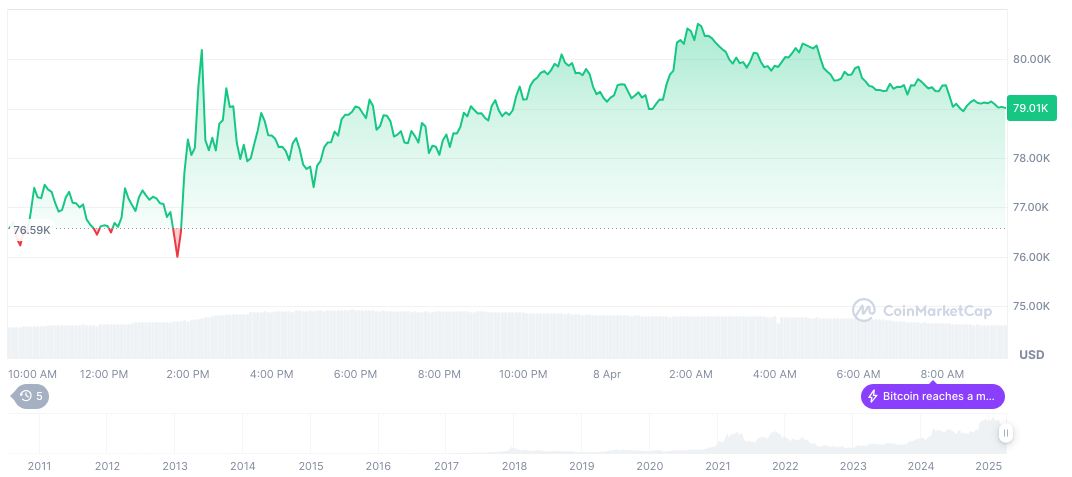US Reciprocal Tariffs Shrink Global Stock Market by $10 Trillion
- US reciprocal tariffs cause global market contraction, affecting tech giants.
- Global stocks lose $10 trillion in value.
- Apple stock falls nearly 23% amid supply chain concerns.
President Donald Trump’s recent announcement of “reciprocal tariffs” has led to a significant contraction in the global financial markets, with reports from Bloomberg indicating a $10 trillion loss in stock value since April 3.
These tariffs have sparked widespread concerns about supply chains and market stability, affecting investor confidence globally. Notably, major U.S. tech firms have faced unprecedented market losses.
U.S. Tariffs Cause $10 Trillion Loss and Hit Tech Giants
Bloomberg reported that the new “reciprocal tariffs,” introduced by the U.S. on April 3, 2025, aim to revive the U.S. manufacturing sector and restore competitive trade balances. Major U.S. tech firms, such as Apple, felt an immediate impact due to their reliance on international supply chains.
The tariffs have resulted in a $10 trillion decline in global stock values. Apple, a key company involved, has seen its shares drop by almost 23%, causing its market value to shrink approximately $638 billion. Market analysts indicate varied responses, with some viewing this as an opportunity to acquire shares at lower prices, while others remain cautious about ongoing risks. Treasury Secretary Scott Bessent criticized China’s retaliatory tariffs and anticipated favorable future trade deals, hinting at potential negotiation flexibility.
According to CoinMarketCap, Bitcoin (BTC) is currently priced at $76,299.68, with a market cap of $1.51 trillion and a dominance rate of 62.55%. Over the past 24 hours, its trading volume fell by 45.41%, and the price dipped by 3.44%, indicating market caution amid ongoing equity volatility.
Bitcoin Price Dips Amid Tariff-Induced Market Uncertainty
Did you know? The last time global markets faced a similar downturn was during the U.S.-China trade war from 2018-2020, highlighting the trade-related vulnerabilities that continue to present challenges to multinational firms.
Coincu analysts suggest that ongoing tariffs may encourage a shift towards digital assets as investors seek alternatives. Historical trends show that times of uncertainty could lead to increased institutional interest in cryptocurrencies. The Coincu research team anticipates potential regulatory challenges but a continued push toward tech innovation under the current economic climate.

Market analysts indicate varied responses, with some viewing this as an opportunity to acquire shares at lower prices, while others remain cautious about ongoing risks.























